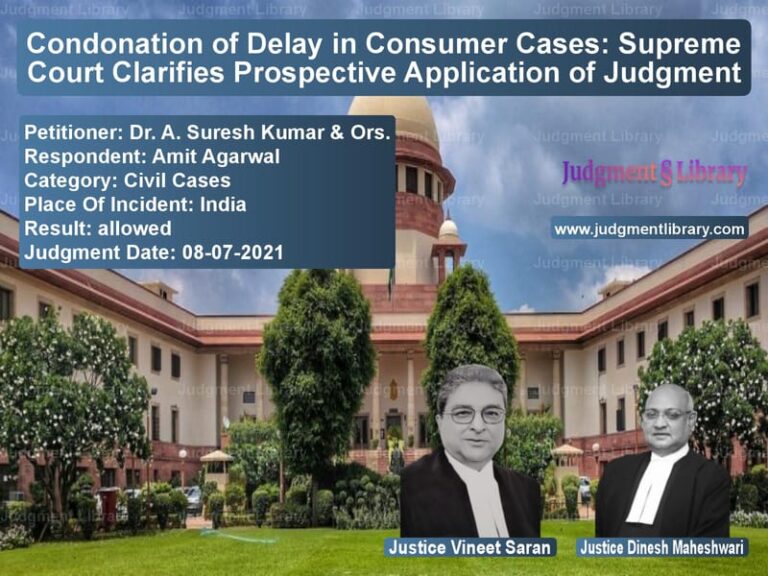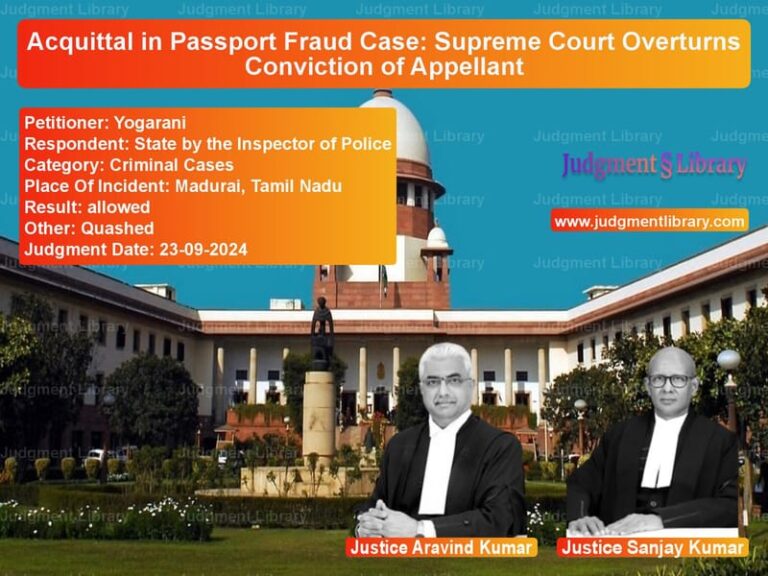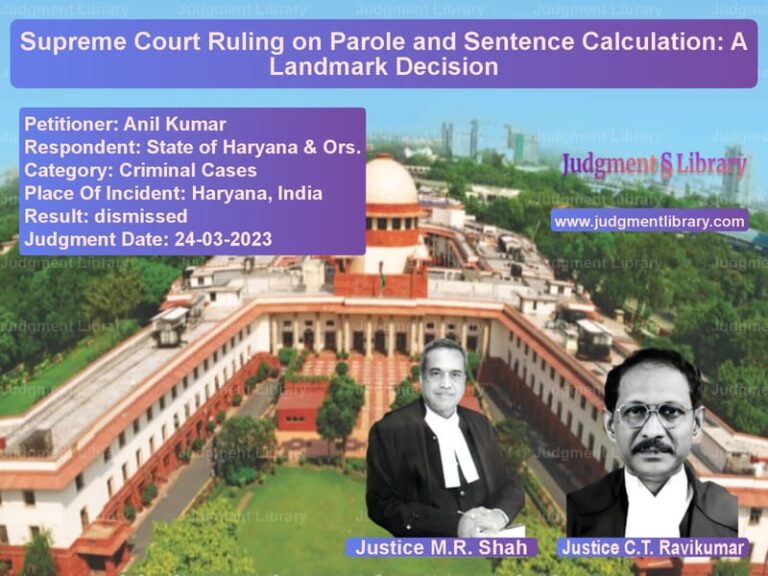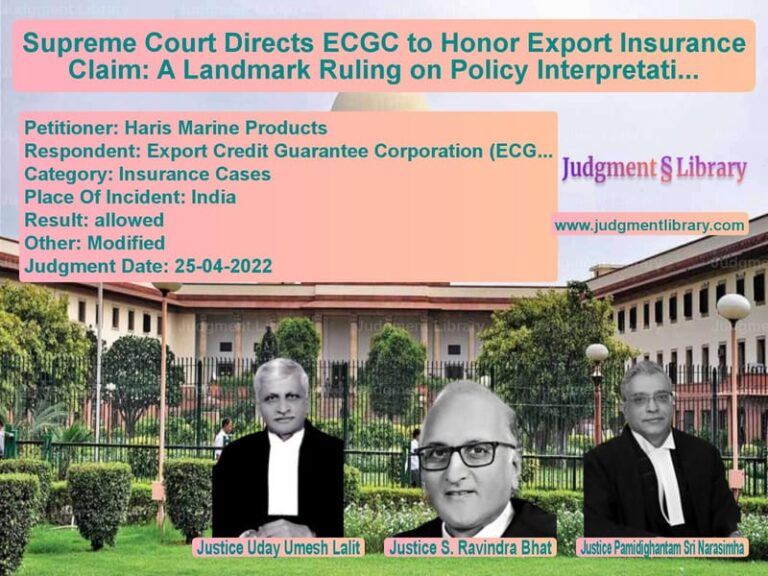Supreme Court Dismisses Review Petition in Ram Krishna Ghosh vs State of West Bengal
The Supreme Court of India, in its judgment dated March 29, 2022, ruled on the review petition filed by Ram Krishna Ghosh against the State of West Bengal and others. The Court dismissed the petition, stating that there was no error apparent on record that would justify interference with its earlier decision.
Background of the Case
The petitioner had earlier approached the Supreme Court challenging the decision of the High Court. However, the Supreme Court had dismissed his Special Leave Petition (SLP No. 12147 of 2021), agreeing with the High Court’s ruling. Dissatisfied with the verdict, the petitioner sought a review of the Supreme Court’s judgment, but the review petition was also dismissed.
Petitioner’s Arguments (Ram Krishna Ghosh)
Ram Krishna Ghosh, in his review petition, contended:
- The Supreme Court had erred in dismissing his Special Leave Petition.
- There were legal and factual errors in the High Court’s decision.
- The case warranted reconsideration due to its significant legal implications.
Respondent’s Arguments (State of West Bengal & Others)
The respondents countered the petitioner’s claims, stating:
- The High Court had correctly applied the legal principles to the case.
- The Supreme Court had already agreed with the High Court’s view, and no new grounds were presented in the review petition.
- Review petitions are meant for correcting apparent errors on record, not for re-arguing the case.
Supreme Court’s Observations
The Supreme Court, comprising Justices Uday Umesh Lalit and Ajay Rastogi, ruled that:
“Agreeing with the view taken by the High Court, the Special Leave Petition was dismissed by this Court. The grounds taken in the Review Petition do not make out any error apparent on record to justify interference.”
Final Verdict
The Supreme Court dismissed the review petition, reaffirming its previous decision and holding that there was no need for further reconsideration.
Implications of the Judgment
The ruling sets an important precedent:
- Review petitions should only be filed when there is a clear and apparent error in the judgment.
- The Supreme Court does not entertain review petitions that are mere attempts to reargue the case.
- High Court decisions, once upheld by the Supreme Court, carry significant weight and are not easily overturned.
Conclusion
The Supreme Court’s decision in Ram Krishna Ghosh vs. State of West Bengal underscores the limited scope of review petitions. It reinforces the principle that once the Supreme Court has ruled on a matter, only errors apparent on record can justify a review. This judgment serves as a reminder for litigants to carefully assess their grounds before filing review petitions.
Petitioner Name: Ram Krishna Ghosh.Respondent Name: State of West Bengal & Others.Judgment By: Justice Uday Umesh Lalit, Justice Ajay Rastogi.Place Of Incident: West Bengal.Judgment Date: 29-03-2022.
Don’t miss out on the full details! Download the complete judgment in PDF format below and gain valuable insights instantly!
Download Judgment: ram-krishna-ghosh-vs-state-of-west-bengal-supreme-court-of-india-judgment-dated-29-03-2022.pdf
Directly Download Judgment: Directly download this Judgment
See all petitions in Contract Disputes
See all petitions in Specific Performance
See all petitions in Judgment by Uday Umesh Lalit
See all petitions in Judgment by Ajay Rastogi
See all petitions in dismissed
See all petitions in supreme court of India judgments March 2022
See all petitions in 2022 judgments
See all posts in Civil Cases Category
See all allowed petitions in Civil Cases Category
See all Dismissed petitions in Civil Cases Category
See all partially allowed petitions in Civil Cases Category







